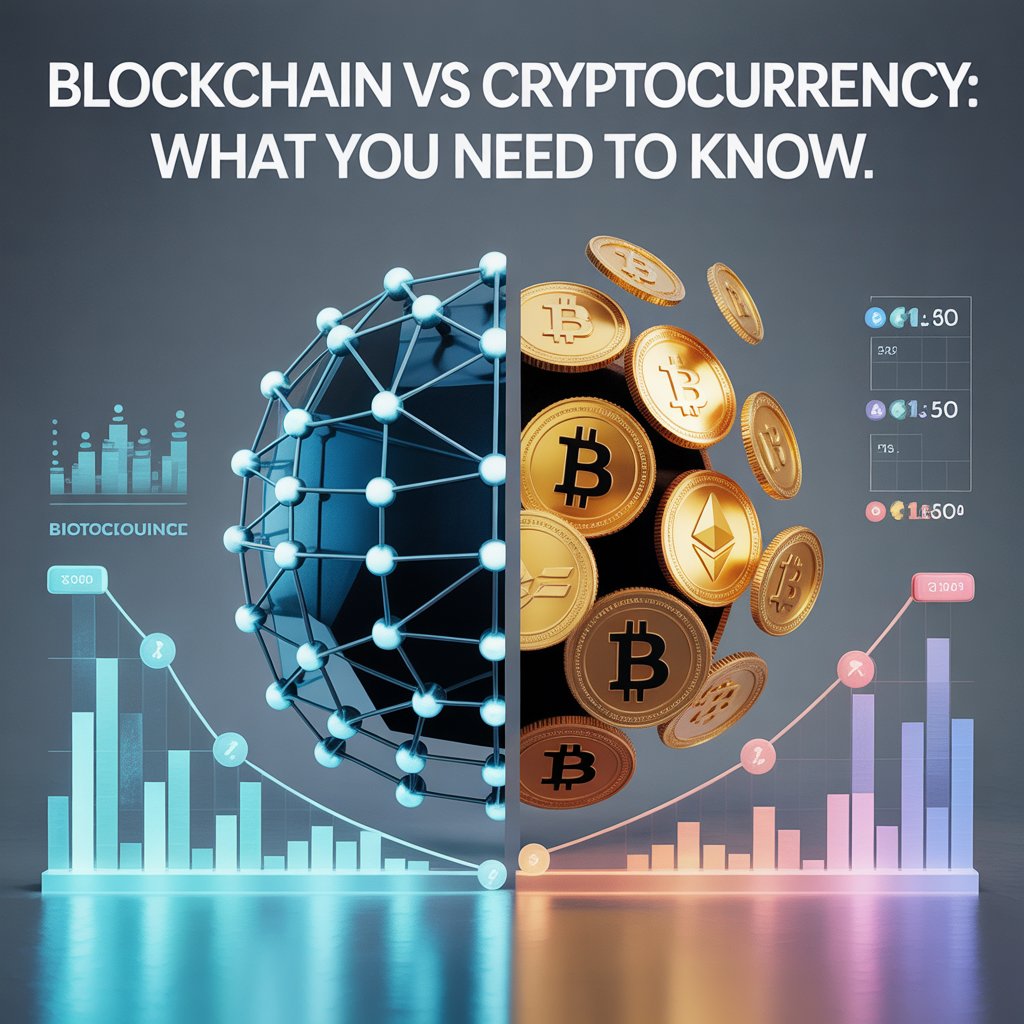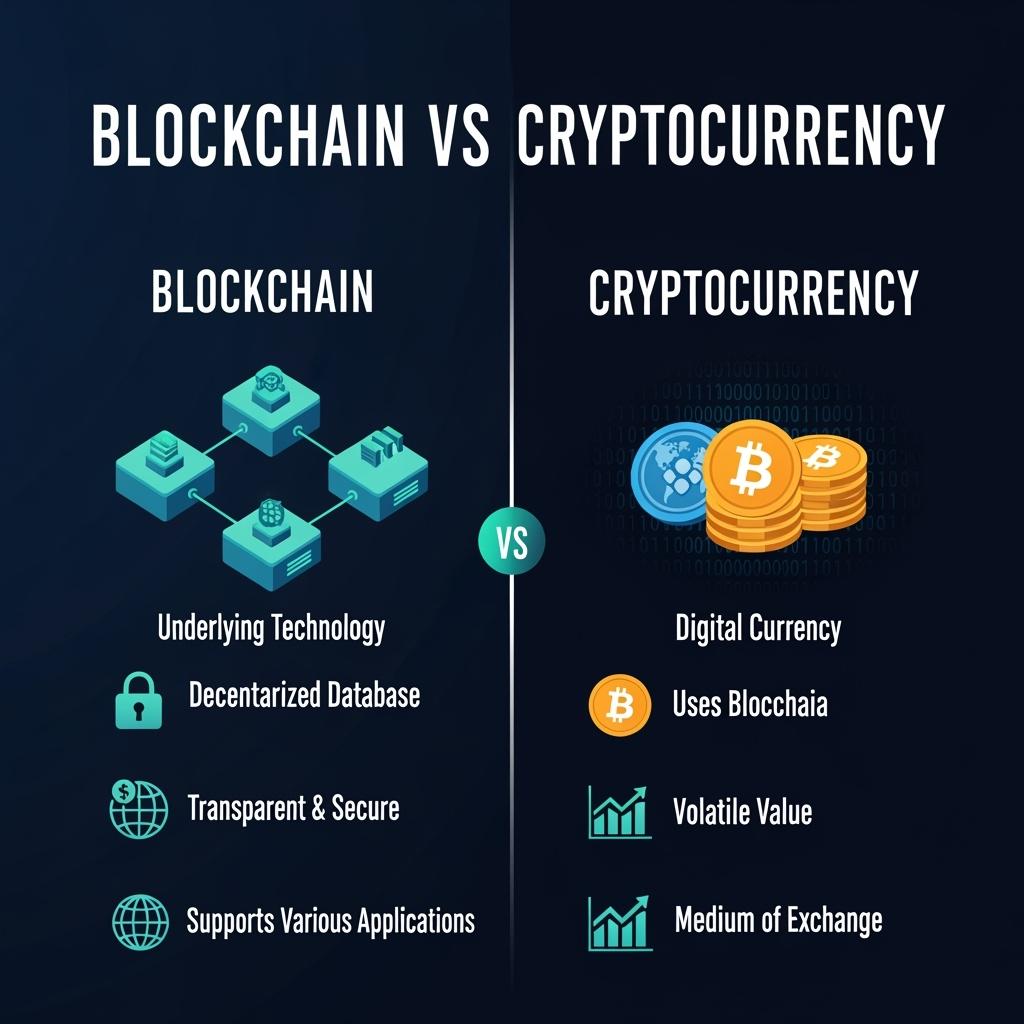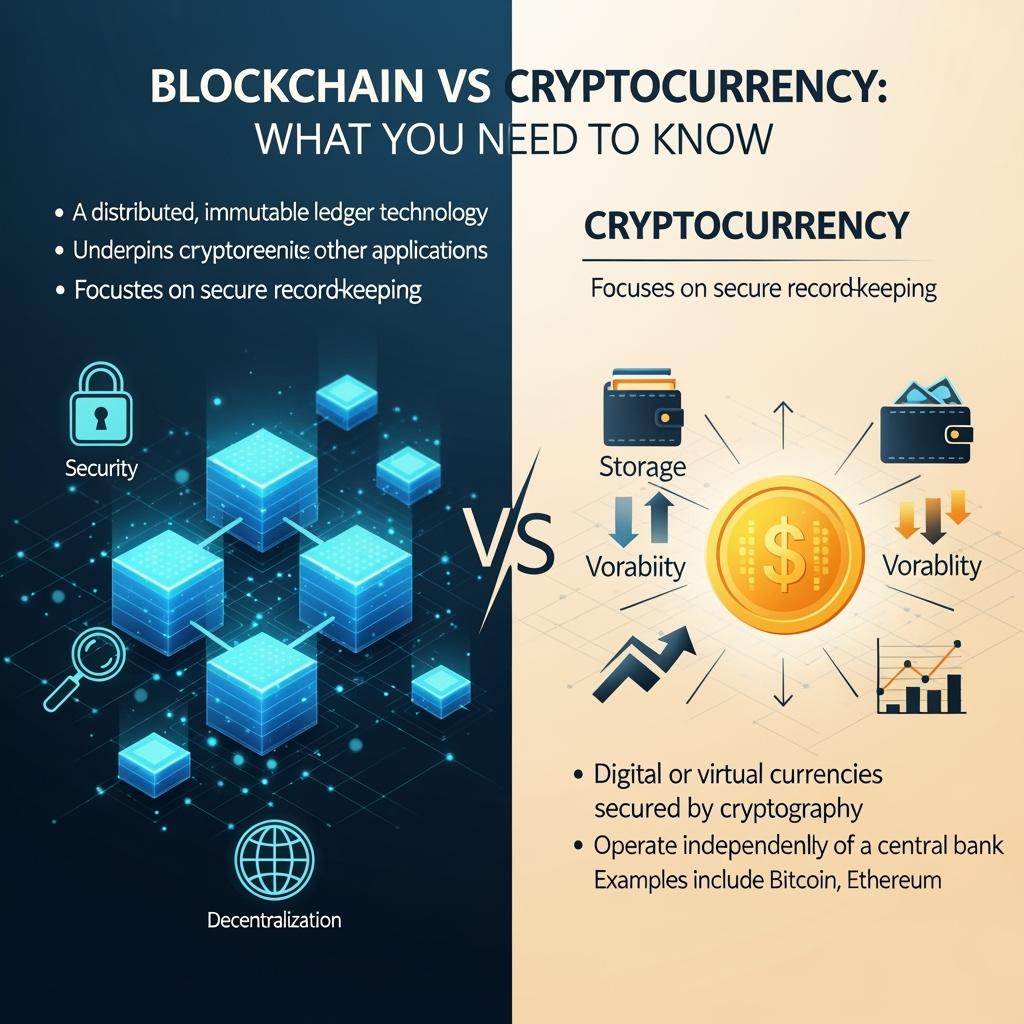Introduction
The debate around Blockchain vs Cryptocurrency has grown as these technologies reshape finance, business, and digital innovation. While often linked together, blockchain and cryptocurrency serve different purposes—one as a secure decentralized ledger and the other as a digital asset built upon it. Understanding Blockchain vs Cryptocurrency is essential for professionals, investors, and tech enthusiasts who want clarity in a fast-changing digital economy.
By exploring Blockchain vs Cryptocurrency, you’ll gain insight into how these groundbreaking innovations work, how they differ, and why they matter for the future of technology and global markets.
What Is Blockchain?
Blockchain is a type of technology called distributed ledger technology (DLT) that keeps track of transactions on several computers. Instead of relying on a central authority, blockchain ensures transparency, immutability, and decentralization.
• Core features: Secure, transparent, tamper-proof
• Use cases: Supply chain management, digital identity, voting systems, healthcare, and finance
What Is Cryptocurrency?
Cryptocurrency is a type of digital money that relies on blockchain technology to keep transactions safe. Bitcoin was the very first cryptocurrency, but now there are many others, like Ethereum, Litecoin, and Ripple.
• Main features: Direct payments between users, no central authority, and a capped amount of coins.
• Applications: Internet payments, investing, sending money across borders, and decentralized finance (DeFi).
Blockchain vs. Cryptocurrency
Aspect Blockchain Cryptocurrency
Definition: Technology framework (DLT) Digital currency built on blockchain
Function: stores, secures, and manages data; facilitates peer-to-peer transactions
Examples include supply chain tracking, smart contracts, and voting systems. Bitcoin, Ethereum, Dogecoin
Dependency Can exist without cryptocurrency. Cannot exist without blockchain
Why This Distinction Matters
• Business leaders should recognize that blockchain can be used for more than just cryptocurrency.
• Investors have to realize that blockchain is valuable even when it’s not related to cryptocurrencies.
• Developers can use blockchain technology for Web3, NFTs, and security purposes.
Real-World Examples
• IBM’s Food Trust uses blockchain technology to monitor food supply chains without involving cryptocurrency.
• Ethereum allows for smart contracts and backs decentralized finance (DeFi) applications using blockchain with cryptocurrency.
Conclusion
Blockchain and cryptocurrency are closely related but not identical. One is the foundational technology, and the other is a financial application built on top of it. By recognizing their differences and use cases, individuals and businesses can make smarter choices about investments, adoption, and future opportunities in the digital economy.
Frequently Asked Questions
Is blockchain only used for cryptocurrency?
While blockchain powers cryptocurrencies, it is also used in healthcare, logistics, voting, and identity management.
Can cryptocurrency exist without blockchain?
Cryptocurrency depends on blockchain as its foundation for transactions and security.
Which is more valuable—blockchain or cryptocurrency?
Blockchain has broader applications across industries, while cryptocurrency’s value depends on market demand and adoption.





